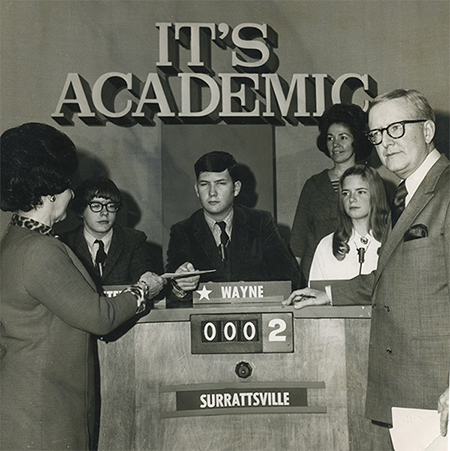Curriculum vitae (that's Latin for ``resume") in
.pdf
or
plain text
format (somewhat out of data).
(Over-)Education
Ph.D., Cognitive Science, Brown University, 1999.B.A., Linguistics, U.C. Santa Cruz, 1990.
B.A., Computer and Information Science, U.C. Santa Cruz, 1980.

Published Papers
-
Finney, S. A., and Palmer, C. (2003).
Auditory feedback and memory for music performance:
Sound evidence for an encoding effect.
Memory and Cognition, 115, 51-64.
( Finney and Palmer (2003) in .pdf format.) - Finney, S.A. and Warren, W. H. (2002). Delayed auditory feedback and rhythmic tapping: Evidence for a critical interval shift. Perception and Psychophysics, 64, 896-908.
-
Finney, S.A. (2001b).
Real-time data collection in Linux: A case study.
Behavior Research Methods, Instruments, and Computers,
33, pp 167-173.
( Finney (2001b) in .pdf format.) -
Finney, S.A. (2001a).
FTAP: A Linux-based program for tapping and music experiments.
Behavior Research Methods, Instruments, and Computers,
33, pp 65-72.
( Finney (2001a) in .pdf format.) - Protopapas, A., Finney, S.A., and Eimas, P.D. (1999). Baseline conditions in structural induction: Comment on Pitt, Smith, and Klein (1998). Journal of Experimental Psychology: Human Perception and Performance, 25, 1472-1475.
-
Finney, S.A. (1997).
Auditory feedback and musical keyboard performance.
Music Perception,
15, 153-174.
( Finney (1997) in .pdf format.) - Finney, S.A., Protopapas, A., and Eimas, P.D. (1996). Attentional allocation to syllables in American English. Journal of Memory and Language, 35, 893-909.
Back to top
Research and Interests
My early graduate school work largely focussed on language,
including formal linguistics (syntax and semantics) and
psycholinguistics.
This included published work on the role of syllables in speech perception
(Finney, Protopapas, and Eimas, 1996; see references above) as well
as unpublished work on the formal syntax of word order in the
Germanic languages, and psycholinguistic work on incremental semantic
processing in speech.
My graduate school training also included significant amounts of
study in neuroscience, neural nets, and general human cognition
(categorization, perception, memory).
More recent research (including my dissertation) has addressed the
role of auditory feedback in human behavior, focussing on music
performance and rhythmic finger tapping.
From 1999 to 2001 I was a postdoc in Caroline Palmer's Music
Cognition Lab in the Department of Psychology at Ohio State University.
My latest work
(in collaboration with Caroline Palmer; see Finney and Palmer, 2003)
addresses the role of auditory feedback in memory for music performance,
demonstrating a robust facilitating effect of auditory feedback on music
learning, but little or no effect of auditory feedback during music
recall or performance.
Two other research areas are:
- The effects of delayed auditory feedback (DAF) on finger tapping. Finney and Warren (2002) (also see my dissertation) showed that the delay causing maximal impairment (the "critical interval") is not fixed but is rate-dependent, and suggested that the impairing effects of DAF may be due to participants entraining to the rhythmic stimulus.
- The effects of altered auditory feedback on music performance. Although DAF robustly impairs music performance, altering the pitches that performers hear has little effect (Finney, 1997). Thus, ``auditory feedback" cannot be viewed as a single entity; different components of feedback may have quite different effects.
For these experiments, I developed a flexible Linux-based ``real-time" (i.e., verified millisecond accuracy and precision for data collection and stimulus presentation) software package for auditory feedback manipulation experiments using MIDI equipment; this package is available for general use and can be downloaded from the FTAP home page. In the process of developing FTAP, I learned a lot about doing ``real-time" programming in Linux, and wrote this up to aid other labs in developing software for psychology experiments under Linux (Finney, 2001b).
Back to top
Dissertation
Finney, S.A. (1999). Disruptive effects of delayed auditory
feedback on motor sequencing.
Unpublished doctoral dissertation, Brown University.
(Bill Warren, advisor).
Abstract
Full thesis in .ps format (sorry, .pdf not currently available; ps2pdf complains about it).
Back to top
News
I left academia in 2002, though I still retain some interest in the field. I haven't yet written a tune for the occasion, though.
Today's news is that there is no news.